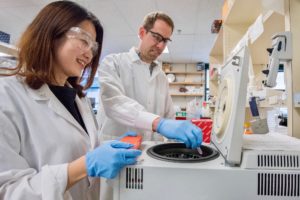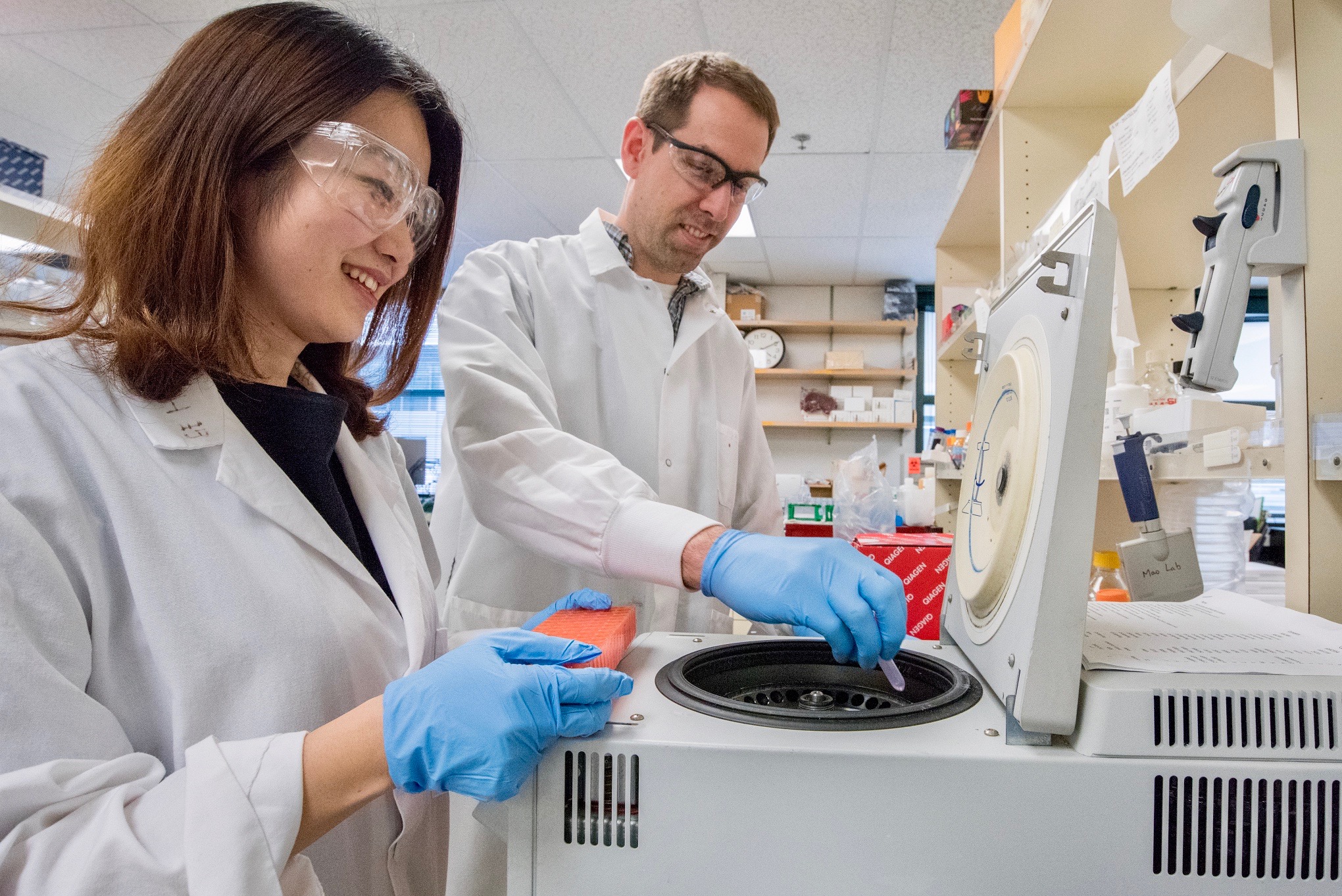
Postdoc Pin Wang and staff scientist Antoine Snijders.
An international team led by researchers in Berkeley Lab’s Biosciences Area has identified a new laboratory mouse strain for studying gastric cancer. The mouse lineage is part of a population called the Collaborative Cross (CC) mouse model that was bred to have greater genetic diversity than previous populations, so as to be more comparable with humans. The team monitored hundreds of mice from different CC strains for one year and observed that one line spontaneously developed tumors—stomach and lymphoid being the most prevalent types—at an extremely high rate. Subsequent genetic analysis of the tumors in this cancer-prone line revealed that an inflammatory response regulating a protein called Nfκb1 could be a key driver of cancer susceptibility in this mouse model.
Read more in the Berkeley Lab News Center.




